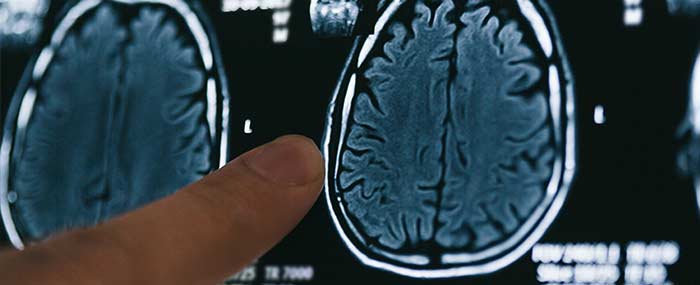Mindfulness has been shown to be effective in relieving symptoms of depression, anxiety, and even chronic pain.
But how does that happen?
The other day, I told you about a study that looked at how mindfulness can change the anxious brain.
As it turns out, scientists have confirmed another brain connection, with a surprising twist. This is really cool.
Dr. Britta Hölzel and her team of researchers from Massachusetts General Hospital conducted a study to look at the impact of an eight-week mindfulness-based stress reduction (MBSR) program on the brains of patients with Generalized Anxiety Disorder (GAD).
Now GAD can be a truly debilitating condition that impairs daily functioning. Patients diagnosed with GAD typically have difficulty regulating their emotions and are often plagued by chronic and persistent worry.

For this investigation, researchers recruited 26 patients diagnosed with GAD to participate in the MRI study.
They randomly assigned half to the MBSR group and half to a stress management education program as a control.
The researchers also recruited 26 demographically matched, healthy individuals for baseline comparisons.
At the beginning of the study, all of the participants were scanned using fMRI. During the scan, participants viewed photographs and labeled the facial expressions within each as angry, happy, or neutral.
This baseline comparison revealed that patients with GAD showed higher amygdala activation than the healthy participants when viewing neutral, not happy faces. The amygdala, as we know, is the part of the brain that’s associated with fear responses.
The researchers took this to mean that the brains of GAD patients at the beginning of the study reacted more strongly to ambiguous stimuli than the brains of healthy participants.
After GAD participants completed their respective programs – either the MBSR training or the stress management course – they completed several self-reported measures of anxiety and stress and also participated in another round of fMRI scans.
Here the researchers noted some interesting changes.

Participants from both the MBSR and stress management groups reported improvement in their symptoms following their trainings. And post-study fMRI scans of both groups showed decreases in activation of amygdala in response to neutral images.
But what’s interesting is that the patients who received mindfulness training also showed increases in connectivity between the amygdala and several regions of the brain that are responsible for successful emotional regulation.
So what can we conclude?
This study has identified particular regions in the brain that seem to correlate with the symptom improvement associated with mindfulness training. Remember, correlation does not imply causation, so we need to be cautious when interpreting the results.
In addition, this study was conducted with a small sample size. I would love to see it replicated with a larger group.
But I do think the findings are promising. If you’re curious to learn more about this, you can find the study in NeuroImage: Clinical, volume 2.
How has mindfulness helped relieve your patients’ symptoms of anxiety or other disorders? Please leave a comment below.
The info on mindful approach is really good. Informative and will be useful in my work.